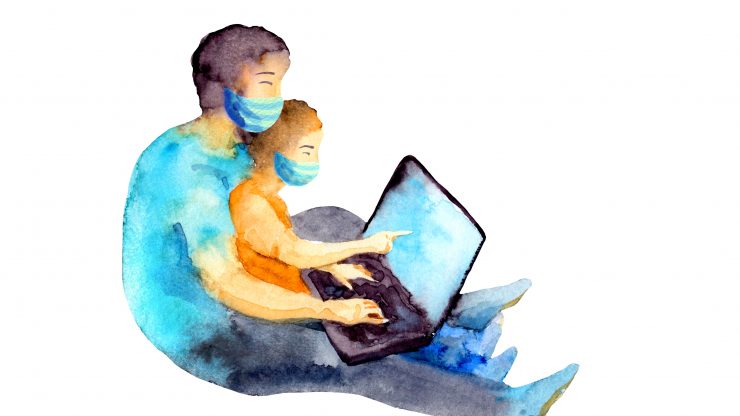CALL FOR PAPERS: This call for papers has a wide scope of interest as it asks for interdisciplinary contributions on the impact of COVID-19 with a focus on the intersection point of media/technologies/education. We are interested in receiving both empirical research and theoretical/critical commentaries on the multifaceted implications of the pandemic exploring the following suggestions that are intended only as prompts and not as an exhaustive list:
-
- Science communication and misinformation in the pandemic age of COVID-19: the pandemic shows the importance of producing and accessing quality scientific dissemination and information for maintaining “healthy” democracies. In this direction, for example, the World Health Organization has launched the programme EPI-WIN to ensure the veracity of the official information conveyed to the public and contrast the “infodemic” about COVID-19, i.e., the overload of unreliable information rapidly spreading through the population. Uncertainty, distrust, social discontent, xenophobia are among the worst consequences of it. Without a minimum scientific knowledge, citizens are more vulnerable to believing fake news posed as scientific facts. In the absence of adequate information, citizens are also unaware of the impact that this misinformation has on their lives, and thus do not have the appropriate tools to put pressure on their governments and exercise fundamental rights for consolidated democracies. Furthermore, rigorous and yet accessible science communication is key to re-legitimize the social function of science and re-establish public trust in scientists as a barrier to the pseudo-scientific discourses wide-spreading in the social web.
-
- Democracy, surveillance and digital capitalism in the pandemic age of COVID-19: In an effort to contain the spread of the virus, governments from all over the world are quickly adopting various systems of monitoring and surveillance enforced by “emergency” powers and legislation. Will public authorities renounce to them with the same rapidity when the emergency will be over? These systems are provided by data-mining companies who are certainly going to gain from the pandemic, not only by signing profitable contracts but also, and more importantly, by legitimizing their role thus getting public acceptance. How is this going to affect democracy? Will this lead to further normalization of digital surveillance and data mining as a way to gather and monetize people’s data? Is this normalization going to make “unpopular” any argument against the risks of digital surveillance in undermining individual rights (privacy, freedom of speech, labour rights, discrimination, etc.) and threatening the very existence of democratic institutions and practices?
- Distance education, remote teaching, smart working: one of the first activities that have been suspended due to the pandemic has been face-to-face teaching at all levels of the educational systems. The sudden and immediate shift towards distance education and remote teaching has shown the several limitations of our systems in terms of digital learning. We discovered how the digital divide was spread out in our nations, preventing millions of students from accessing basic education. We also found out how far we are from being prepared to deliver online education according to active and collaborative methodologies. We realised that extensive online teaching entails different times when compared to face-to-face education: the relationship between personal everyday life and smart working looks like a seamless experience with an increase of workload. Somehow, it seems that we are not prepared yet to be full-time online teachers! At the same time, we observed how screens may unite us allowing teachers and students to keep on the educational and relational continuity beyond our expectations. We also meet colleagues willing to take the opportunity to redesign their teaching and reshape their practices. In this rich scenario, what have been the main challenges and opportunities that schools and universities faced during the pandemic and what are the main lessons learnt? How have students experienced this unplanned shift to distance learning, and how have their parents reacted? Besides teaching, what was the COVID-19 impact on the other educational services such as libraries, centres for teaching and learning, research laboratories, and what can we learn for the future?
Important dates
- August 30, 2020: Articles submission deadline
- October 15, 2017: Notification of article acceptance (with any requested changes)
- November 15, 2020: Final article due (with any changes)
- December 20, 2020: Publication of the issue
Visit our website for more info


